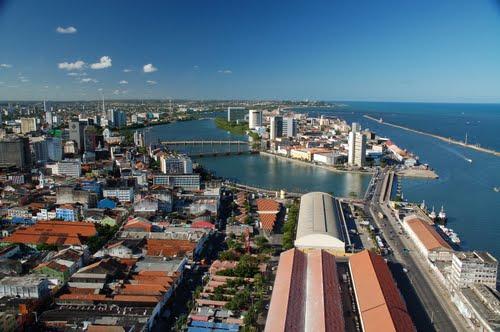Recife, Brazil
Recife part for life

Background Information
Recife Pact for life (RPFL) is, to begin with, a city commitment to the lives of its own inhabitants, and a pact in which the local government commits to the population’s safety and quality of life. It is also a public claim for community involvement in developing integrated actions to combat crime and urban violence. Whilst the city government assumes the duty to provide public safety, civil society mobilizes itself in a collective effort to support the development and sustainability of human life.
Goals of the Initiative
In 2013, RPFL aimed to reduce ILVC rates by 12 percent a year and improve the model of public security management at the municipal level, within four years with crime prevention as the main mission. The initiative's main strategy focused on developing urban safety management in four areas: social control and urban planning, social crime and violence prevention, risk situation recovering, social participation and civic culture.
Innovation for the Initiative
A behavioral change is expected, and thus an improvement in the quality of life can be achieved. In terms of social and economic changes, it is important to strengthen the city’s competitiveness by reducing violence. The expected change begins at the municipal level, but it also transcends into the state.
The reduction of ILC is the main objective of the RPFL. For that, some measures must be applied, such as creating more space for bicycle lanes, sidewalks and streets; to resume the function of public squares; to relocate from poorly developed areas to better housing; and to increase the number of public nurseries, and schools.
Indicators of measurement are obtained by the SEPLAG (Secretary of Planning and Management) and used to establish and monitor the goals of all secretaries involved in the RPFL.
-
 In Focus | The World Earth Day: Planet vs. Plastics
In Focus | The World Earth Day: Planet vs. Plastics -
 Urban Innovation in China | Shenzhen: How to Maintain Momentum to Achieve Carbon Peak by 2030 While Leading Green and Low-Carbon Development?
Urban Innovation in China | Shenzhen: How to Maintain Momentum to Achieve Carbon Peak by 2030 While Leading Green and Low-Carbon Development? -
 City Stories | Antananarivo, Madagascar: Building Resilience in the City Food System
City Stories | Antananarivo, Madagascar: Building Resilience in the City Food System -
 In Focus | International Women’s Day: Building a Women-Friendly City
In Focus | International Women’s Day: Building a Women-Friendly City























 Tel: +86 20 3780 4434
Tel: +86 20 3780 4434 Email: info@guangzhouaward.org
Email: info@guangzhouaward.org Address: Rm 1609, FuLiXinTianDi, No.307 Guangzhou Dadao Zhong, Yuexiu District, Guangzhou, Guangdong, 501600, PRC
Address: Rm 1609, FuLiXinTianDi, No.307 Guangzhou Dadao Zhong, Yuexiu District, Guangzhou, Guangdong, 501600, PRC




